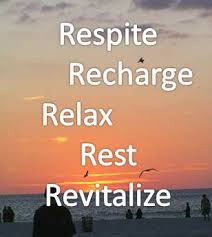
Nearly 44 million adults in the US are providing personal assistance for a family member with a disability or other care needs. That’s more than one out of every six adults. More than 34 million care for frail elders and nearly 4 million help children with disabilities. About 6.5 million care for both. (NAC and AARP Public Policy Institute, 2015)
Many of us will be in the role of family caregiver for an older parent, a spouse, a child with a disability, grandchildren, or even possibly for a friend or neighbor. It is very important to provide support and respite options for caregivers so they can continue being successful in their caregiving roles.
59% of caregivers with internet access say that online resources have been helpful to their ability to provide care and support for the person in their care. 52% of caregivers with internet access say that online resources have been helpful to their ability to cope with the stress of being a caregiver. (Susannah Fox, Maeve Duggan, Kristen Purcell, 2013)
Respite care means the provision of short-term relief to primary caregivers from the demands of ongoing care for an individual with special needs. Families receiving occasional respite services are less likely to request admission of an individual to a nursing home, foster care, or other out-of-home care at public expense.
Respite services reduce family and caregiver stress, enhance family and caregiver coping ability, and strengthen family and caregiver ability to meet the challenging demands of caring for family members. Respite reduces the risk of abuse and neglect of children, senior citizens, and other vulnerable groups.
The Nebraska Lifespan Respite Services Program established 16 years ago is administered by the Department of Health and Human Services (DHHS). Respite Coordinators are tasked with matching families and caregivers with providers, linking them with funding sources, identifying, coordinating and developing community resources for respite services, and assisting families and caregivers to identify respite care needs and resources. Other components of the Lifespan Respite Network (LRN) include recruiting, screening and training respite providers. In 2011 The Center on Children, Families and the Law (CCFL), acquired responsibilities to develop a new database for the LRN.
CCFL launched the eLifespan Respite System (eLRS) for the Nebraska Lifespan Respite program in the fall of 2012. eLifespan Respite System was created and designed specifically for respite coordinators. The web-based system is centrally located and allows multiple concurrent users access to critical information in real-time. The system matches the needs of the caregiver and care recipient with the skill set of the provider.
Reports can be generated at any location. All a coordinator would need is network or internet access to gain access to this secured database. No additional application files or programs are needed to gain access to the database.
FEATURES
•Easily capture detailed Provider related profile and services information
•Allow Respite Coordinators to keep a history of referrals they make to the Providers and the outcome.
•Flexible reporting capabilities.
•Ability to export defined data fields to other databases
One of the most useful functions within the eLifespan Respite System is the ability to quickly and easily track provider’s background status. Alerts are generated to the respite coordinator for caregiver follow-up, background checks becoming due, and for anything in the system that “needs reviewed."
The Nebraska Resource and Referral System (NRRS) is the online public access to respite providers. Family caregivers can locate respite providers by an easy search, or can complete an assessment to be able to match the providers to what their needs are.
Collaborating as a team can be a real challenge. Getting everybody on the same page, assigning tasks, following up on pending items, and making sure everyone is always in the loop is never easy, and it is something that the Respite Network struggled with. The Respite Network Support Site was built to alleviate this struggle. Coordinator have a direct line to system issues and is a place to ask other coordinators about anything respite.
Mission:
To educate, advocate, and promote access to respite options for people who care for a loved one.